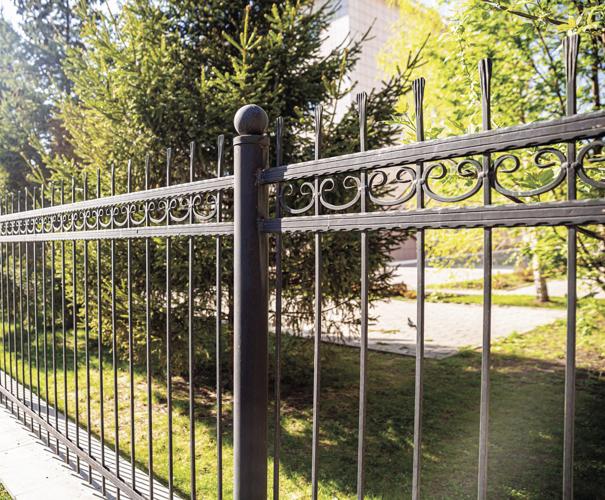All Categories
Featured

When setting up a fence, selecting the ideal product is vital to balancing functionality, aesthetic appeals, and spending plan. Wood, vinyl, and aluminum are amongst the most typically selected fence materials, each with its downsides and toughness. This overview discovers the benefits and drawbacks of these alternatives to assist you make an informed choice.

Wood Secure Fencing. Pros:. All-natural Beauty: Timber's timeless appeal can improve any residential property with its timeless and warm appearance. Adjustable: You can repaint, tarnish, or sculpt wood to fit your style choices. Inexpensive: Timber fencing is originally a lot more budget-friendly contrasted to a few other materials. Ecologically Friendly: As a renewable energy, timber is biodegradable and commonly considered green. Disadvantages:. Maintenance-Intensive: Routine securing, painting, or staining is needed to prevent damages from climate and bugs. Prone to Degeneration: Without proper care, wood can rot, warp, or fracture gradually. Shorter Life-span: On average, wood fencings last 10-15 years, depending on the kind of timber and upkeep. Wood is a fantastic choice for those who value aesthetic appeals and are ready to purchase routine maintenance to preserve its look and resilience.
Vinyl Fencing. Pros:. Low Upkeep: Plastic needs minimal care-- just occasional cleansing with soap and water. Weather condition Resistant: It doesn't warp, rot, or yield to insect damage, making it highly sturdy in various climates. Durability: Plastic fencings can last 20-30 years with little to no repair work. Design Selection: Available in a variety of appearances, shades, and designs, consisting of wood-like appearances. Cons:. Higher Preliminary Expense: Vinyl fences are much more pricey upfront compared to timber. Vulnerability to Cold: In incredibly winter, plastic can come to be susceptible and breakable to breaking. Restricted Repair Work Options: Matching replacement panels can be challenging if damage occurs. Vinyl secure fencing is perfect for homeowners trying to find a durable, low-maintenance service that supplies contemporary versatility.

Aluminum Secure Fencing. Pros:. Rust-Proof: Aluminum stands up to deterioration, making it a superb choice for damp or wet atmospheres. Long lasting: Despite being light-weight, aluminum is strong and can withstand rough weather. Low Upkeep: It calls for minimal upkeep, normally just occasional cleansing. Long Lifespan: Aluminum fencings can last decades without substantial damage. Elegant Layout: Frequently made use of for ornamental objectives, light weight aluminum fence adds a sleek, advanced appearance to residential or commercial properties. Disadvantages:. High Preliminary Investment: Aluminum fences are amongst the pricier choices on the marketplace. Much less Privacy: The open layouts common with light weight aluminum secure fencing don't offer much personal privacy. Susceptible to Damages: While sturdy, light weight aluminum can damage if struck with adequate force. Light weight aluminum is an exceptional choice for property owners focusing on visual appeals and resilience without requiring much maintenance.
Making Your Choice. When deciding in between light weight aluminum, timber, or vinyl fencing, consider your priorities:
Wood suits those that value a natural appearance and don't mind placing in maintenance initiative. Plastic is the most effective choice for those looking for a low-maintenance, weather-resistant remedy. Light weight aluminum offers streamlined design and resilient durability yet might do not have personal privacy. By very carefully evaluating these products' features, you can pick a fencing that matches your residential or commercial property while fulfilling your useful and visual requirements.
Latest Posts
Optimize Your Cost Savings with Love My Credit Scores Union Incentives
Published Apr 19, 25
1 min read
Optimize Your Savings Possible with WyHy MAX Money Market
Published Apr 19, 25
1 min read
Full Circle Strategic Marketing - Own Search Rankings with Winning SEO Tactics
Published Apr 19, 25
2 min read
More
Latest Posts
Optimize Your Cost Savings with Love My Credit Scores Union Incentives
Published Apr 19, 25
1 min read
Optimize Your Savings Possible with WyHy MAX Money Market
Published Apr 19, 25
1 min read
Full Circle Strategic Marketing - Own Search Rankings with Winning SEO Tactics
Published Apr 19, 25
2 min read